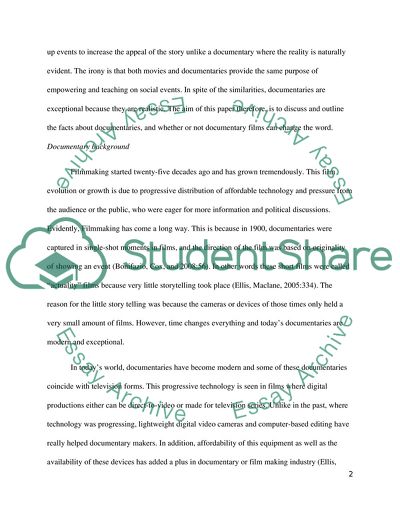Cite this document
(A Documentary Film Can Change the World Assignment Example | Topics and Well Written Essays - 2500 words, n.d.)
A Documentary Film Can Change the World Assignment Example | Topics and Well Written Essays - 2500 words. https://studentshare.org/visual-arts-film-studies/1796196-media-productions-documentary-practices
A Documentary Film Can Change the World Assignment Example | Topics and Well Written Essays - 2500 words. https://studentshare.org/visual-arts-film-studies/1796196-media-productions-documentary-practices
(A Documentary Film Can Change the World Assignment Example | Topics and Well Written Essays - 2500 Words)
A Documentary Film Can Change the World Assignment Example | Topics and Well Written Essays - 2500 Words. https://studentshare.org/visual-arts-film-studies/1796196-media-productions-documentary-practices.
A Documentary Film Can Change the World Assignment Example | Topics and Well Written Essays - 2500 Words. https://studentshare.org/visual-arts-film-studies/1796196-media-productions-documentary-practices.
“A Documentary Film Can Change the World Assignment Example | Topics and Well Written Essays - 2500 Words”. https://studentshare.org/visual-arts-film-studies/1796196-media-productions-documentary-practices.


